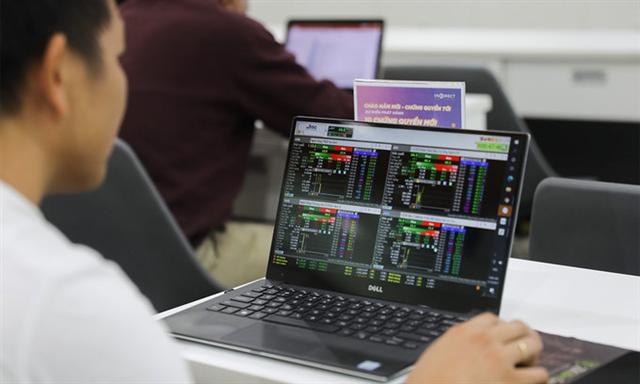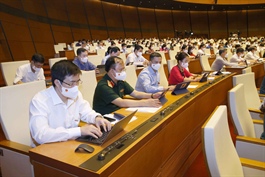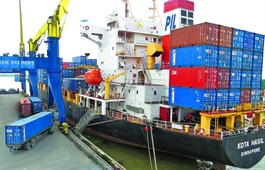Lawmakers worry about asset bubble, rising debt
Lawmakers worry about asset bubble, rising debt
The National Assembly has expressed concern about the economic impacts of real estate and securities asset bubbles as well as mounting bad debt.
An investor looks at stock prices on a laptop at a brokerage in Ho Chi Minh City. Photo by VnExpress/Quynh Tran.
|
There will be high inflation pressure in the last six months as some macro-economic figures are not sustainable and prices of some asset classes are likely to continue rising, Vu Hong Thanh, head of the Economic Committee of the National Assembly, said Thursday.
He noted that prices had risen in some related categories in the first six months. House construction materials prices had risen over 5 percent year-on-yea, and that of fuel by 51.4 percent. Animal feed import prices had risen 6.66 percent year-on-year, and there was a supply shortage.
In some localities, especially near big cities, there were rumors of development projects that led to land speculation and rising prices.
Real estate developers have also been issuing large amount of bonds to raise money. In May, 26 percent of bond issuance were without guarantees, offering high coupon rates of 9.5-11 percent a year.
"We request that the government evaluates the possibility of a real estate bubble and its risks to the economy, as well as the rising bond issuance value of real estate developers," Thanh said.
The committee also wants the government to look into the stock market that had skyrocketed in the first six months, with the benchmark VN-Index surging 27.6 percent to over 1,400 points, while daily trading value tripled year-on-year to over $1 billion each session.
The number of new securities accounts surged 3.7 times to 482,800 in the period.
The surging prices of real estate and securities could cause negative impacts to the macro economy, the committee said.
Another concern was mounting bad debt. The amount of bad debt and potential bad debt of the whole banking system was VND483.2 trillion in the first half, or 4.71 percent of total debt.
The economic committee called for more practical solutions to help businesses approach loans more easily to recover from Covid-19 impacts.


























